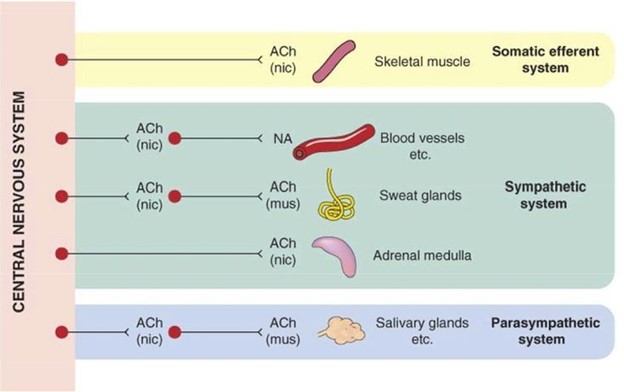A nurse is caring for a client who is prescribed diphenhydramine to relieve pruritus. The client asks the nurse how he can minimize the daytime sedation he is experiencing. Which of the following responses should the nurse give?
"Distribute the doses evenly throughout the day!"
"Gradually decrease the dose once tolerance to the effect is reached."
"Take the medication with meals."
"Take most of the daily dose at bedtime."
The Correct Answer is D
Diphenhydramine is an antihistamine medication that can cause sedation as a side effect. Taking most of the daily dose at bedtime can help minimize daytime sedation. By taking the medication closer to bedtime, the sedative effects are more likely to occur during sleep, reducing the impact of sedation during waking hours.
The other options mentioned are not effective strategies to minimize daytime sedation caused by diphenhydramine:
A. "Distribute the doses evenly throughout the day": This approach may lead to a consistent level of sedation throughout the day and may not effectively minimize daytime sedation.
B. "Gradually decrease the dose once tolerance to the effect is reached": Gradually decreasing the dose of diphenhydramine is not a recommended strategy for minimizing daytime sedation. It is important to follow the prescribed dose and consult with a healthcare provider before making any changes to the medication regimen.
C. "Take the medication with meals": Taking diphenhydramine with meals may help reduce the risk of stomach upset but does not directly address the issue of daytime sedation.
Nursing Test Bank
Naxlex Comprehensive Predictor Exams
Related Questions
Correct Answer is B
Explanation
The Parasympathetic Nervous System utilizes the neurotransmitter acetylcholine. Acetylcholine is released by the postganglionic neurons of the parasympathetic nervous system and acts on target organs and tissues to elicit parasympathetic responses. It plays a crucial role in regulating various bodily functions, including digestion, heart rate, respiratory rate, and other rest and digestion activities.

Correct Answer is C
Explanation
Acetaminophen overdose can cause liver damage, and acetylcysteine is used as an antidote to prevent or minimize the liver injury caused by acetaminophen toxicity. Acetylcysteine works by replenishing glutathione, a substance that helps neutralize the toxic byproducts of acetaminophen metabolism in the liver.
It is important to note that acetylcysteine is specifically indicated for acetaminophen overdose and may not be effective or appropriate for overdosage of other drugs, such as ibuprofen, diphenhydramine, or amoxicillin.

Whether you are a student looking to ace your exams or a practicing nurse seeking to enhance your expertise , our nursing education contents will empower you with the confidence and competence to make a difference in the lives of patients and become a respected leader in the healthcare field.
Visit Naxlex, invest in your future and unlock endless possibilities with our unparalleled nursing education contents today
Report Wrong Answer on the Current Question
Do you disagree with the answer? If yes, what is your expected answer? Explain.
Kindly be descriptive with the issue you are facing.
